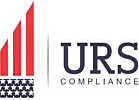Unified Registration Statement (URS)
PurposeThe Unified Registration Statement (URS) was created to simplify the process of registering charitable organizations for fundraising in multiple U.S. states. It serves as a consolidated alternative to the varying forms and requirements used by individual states.
ScopeThe URS is accepted by many states with charitable registration requirements. However, some states have additional forms, fees, or documentation that must be submitted alongside the URS to fully comply with their regulations.
ContentThe form collects information about the charitable organization, including:
- Name and Contact Information: For the organization and its officers or directors.
- Mission and Activities: Details about the organization's purpose and programs.
- Financial Information: Such as revenue, expenses, and assets, often drawn from the organization's IRS Form 990.
- Fundraising Practices: Information about professional fundraisers, contracts, and solicitation methods.
- Not all states accept the URS, and requirements can vary significantly even among those that do.
- Supplemental materials like audited financial statements or state-specific forms might still be required.
- Some states impose additional rules, such as mandatory online filings, that make the URS insufficient on its own.
- Check Participating States: Confirm which states accept the URS and review their specific requirements.
- Complete the Form: Accurately fill out all sections of the URS, including any state-specific addenda.
- Attach Additional Documents: Provide supporting materials required by individual states.
- Submit: Send the completed URS and supplemental materials to each participating state's regulatory office.
For organizations with broader compliance needs, managing these registrations can still be complex. Some organizations turn to professional services, like URS Compliance Services, to ensure compliance.
